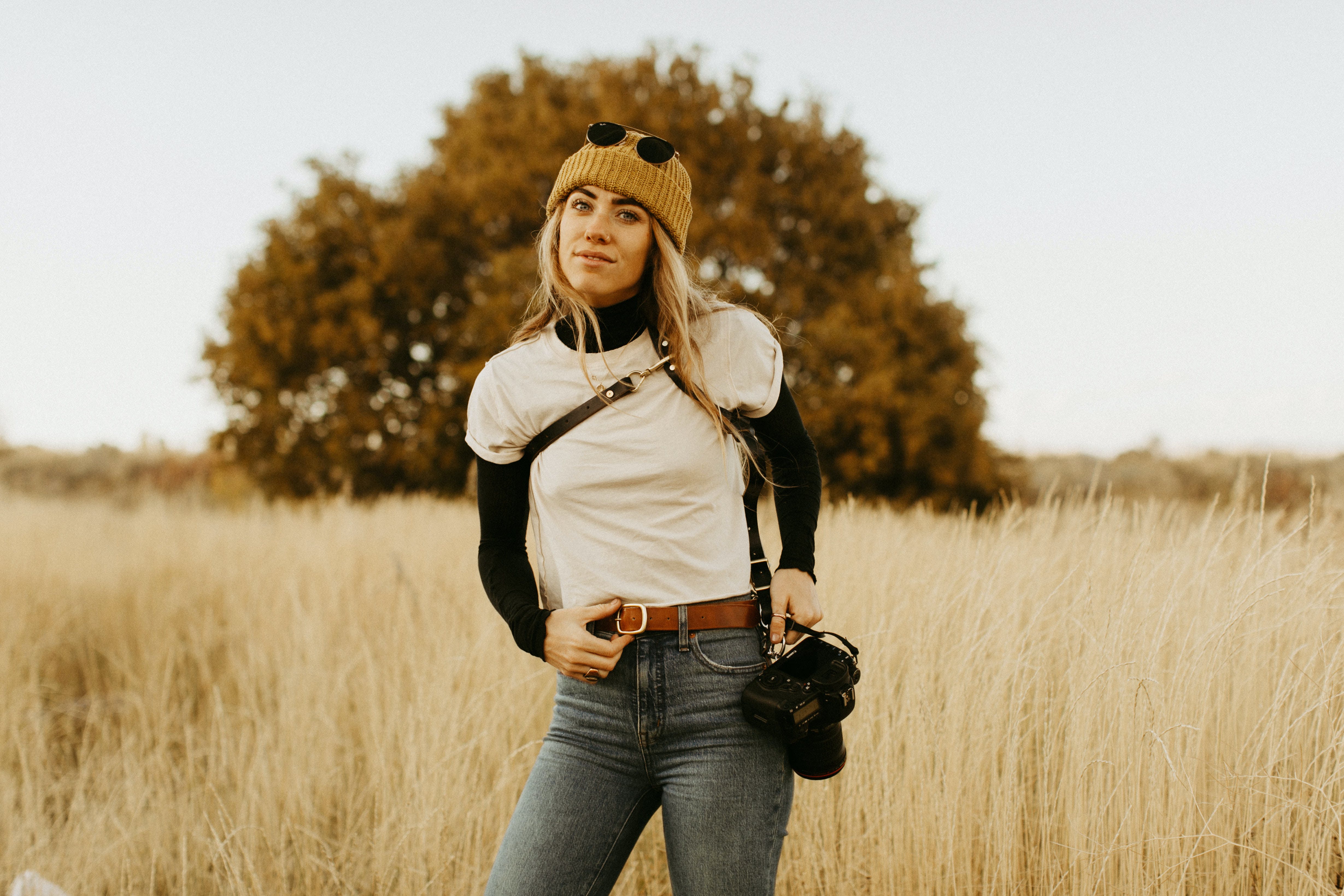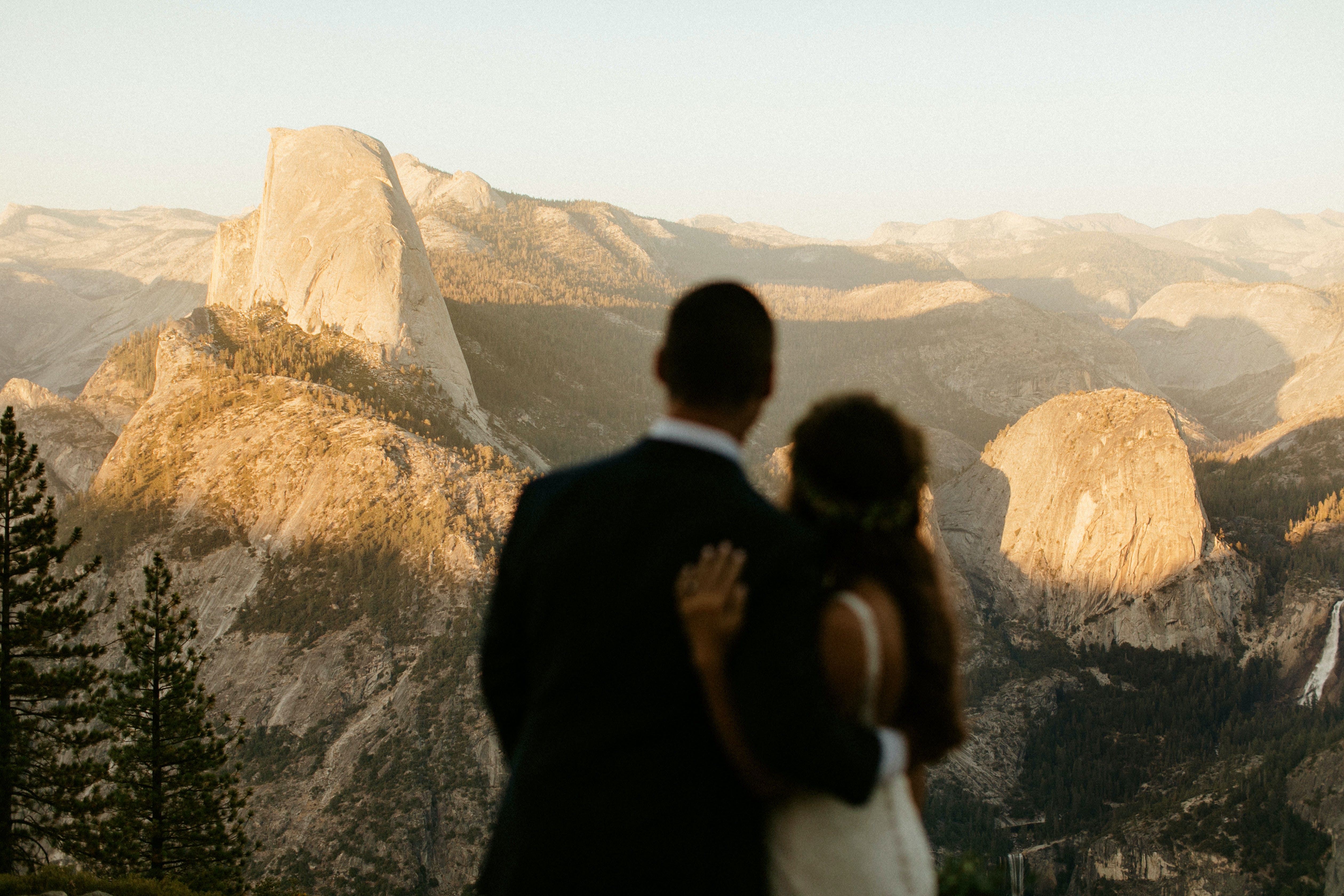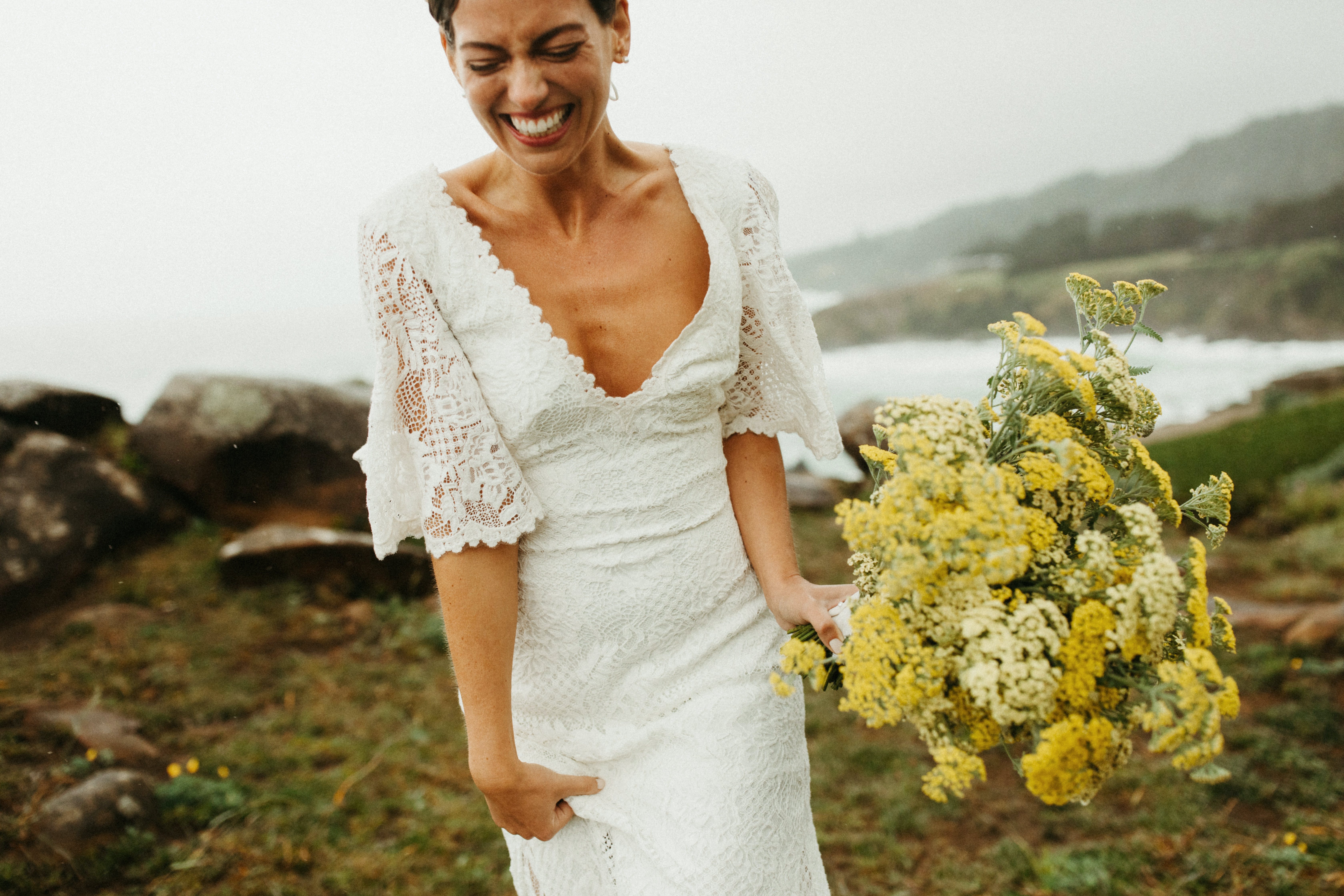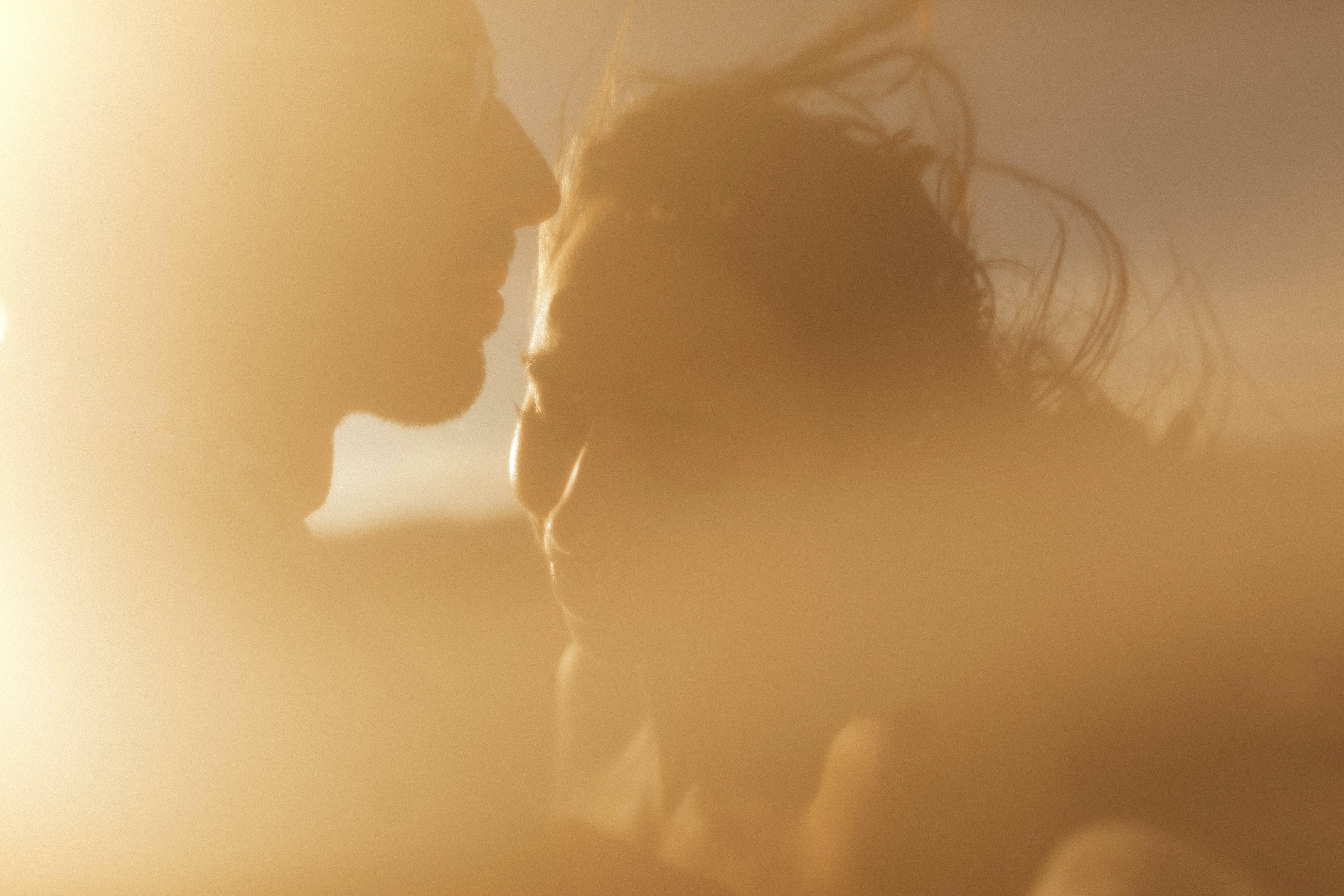Beyond My Lens: Photographer Katie Levine’s Storytelling Podcast, Supported by Narrative
Blog
By Rebecca Bradley

I'm sure you have all heard of India Earl, and incredible wedding and elopement photographer based in Utah. With over seven years in the industry, she's built an incredibly successful education business consisting of six online courses, 15 guides and templates and a preset pack. I recently chatted to her about her pivot 'photographer' to business education mogul. We dig into how she markets her products, determines her pricing, and much more!
Yeah! When I started out there was no such thing as community over competition, it was just every man for themselves. It's so opposite now which is great! I'm so jealous of the photographers starting now, because there are so many recourses for them. I wouldn't have it any other way but it took me probably four years to figure out what I was doing and to develop my style. Now I have seen photographers in the first year develop a business, a style and have things picking up. I just think that it's awesome they can do that in such a shorter time span!
I feel like every single year since I went full time in my business I have made changes but it always seems like the common theme is I am taking on less photography work and trying to be more intentional about where I shoot, when I shoot, who it's with. That's been really awesome because I feel like that's what has bought a ton of my passion into every single job that I do. Whereas when I went through a phase where I was shooting 70 weddings, I still loved all of those clients and experiences but I was burnt out the whole time because I was doing way too much and saying yes to everything. Learning to say 'no' and taking on less photography work eventually lead me to being able to explore the option of passive income. I was already teaching at workshops and conferences all over the world, doing lots of mentoring online, people would fly out to me and it started to pick up to the point where I felt like I was doing 70 weddings a year again and feeling burnt out. I thought I just need to put all this information that I am sharing over and over again online. I wanted it to be more accessible because I would have people that would reach out to me saying "I wish I could mentor sessions with you but I can't afford to come out to Utah." I wanted to create something affordable that people could do from their couch, especially if they have a family or another job, I wanted it to work for everyone.
I launched my first course when I was 20 and it went really well and I thought, "wow! I didn't even know there was an interest in this". I just made it for the people who had been reaching out to me but after I posted it people loved it so I started to add more to it, bring out new courses and make them better. That eventually picked up so much and the demand for it has grown which is great! Now I am doing about 60% education and 40% shooting which is nice.

When the things people are asking for are becoming repetitive and I hear the same requests over and over again I know there's interest in it. From there I will poll my audience and ask them what they want to know about a specific topic and if I feel like I get enough questions from that and feel confident that I can build a course from it I just go for it. It's really not a lot of work time-wise and there's no investment really other than my time so even if a course doesn't go crazy as long as it sells a certain amount then I am super happy with the outcome and it was worth my time.
A lot of the time I am approaching the educator because I will hear about their product or see them teach in person at a workshop. I'll just tell them that I think they should make a product because I think it will do really well and let them know that I will help them make it, launch, sell it and it's great because it helps both of us and it gives them an easy platform to carry their products on. Sometimes I have people that will apply, they will send me their product, I will review it and if it's not a product that competes with something I am already selling then it's great.
It's been cool because I feel like I have been able to find the best of the best products in the market, ones that I have used, learnt from and really believe in. I always want to make sure that I carry products that are reputable and I am never trying to sell something to anyone that they will regret buying or I am never trying to talk anything up to much. I don't want people to waste their money on something I sell, I want it to help them, that's my intention. Bringing partners into it has made it a much more fun process as it brings more community together as there are so many educators coming into one big pool and all their audiences are coming together on that platform as well. It kind of just feeds into each other and everyone helps each other out and I feel like it just makes the photography world feel a little bit smaller which is great.

Terrible! Even with my camera, a lot of time I am just crossing my fingers, I'm not a technical person at all, I never have been. With so many of my courses, I feel like I just screw up the launch royally because we will think everything is good to go and then it's not and it just sets us back. It's a running joke with my team that we just prepare for things to go wrong every single launch now because something does but it's good because we learn every time. Now we are at a point where we are not having big technical issues anymore which is nice. I am the queen of technical issues so I am not even surprised when that happens anymore and my audience probably isn't either. It's definitely been a learning curve. Now I have people whose job is to work with those programs so bringing them onto my team has helped a lot too.
I think having a really strong prelaunch is important. With online courses, because they are usually evergreen, which means once you put it on your site it's always going to be there, people tend to think it's exciting but tell themselves they will save up and buy it later but never do. By finding ways to get people feeling like they are invested in the course before it even comes out, they feel like they are contributing to the creation of it and feel invested. Combining that with a sense of urgency so they buy it within a certain timeframe when it launches has worked well for me. By doing weeks worth of getting people super excited about it, getting them involved, giving out free information and getting them emotionally invested in the product, by the time I launch it they already have their wallets open and they buy it. Even if it's an evergreen product, I want to hit the goal of the money I want to make from that one product within the first week of it being live and then after that everything else is just a bonus.

I think my most popular course is my posing course. With that one, people were drawn to the intention behind the whole thing because there is a lot of posing courses out there as well as posing decks for inspiration. Those are great but for me, the whole thing with the posing course is a lot more about the mindset and how you treat people, read energy and play off of that. Also knowing that it's different every single time, rather than just giving people who do the course a list of poses because that just takes all the specialness out of it, not only so much for you, but the couple. I don't want my couples looking at their photos and thinking "oh remember when she put us in that pose." I want them to think "remember when we were being so dumb rolling around and India got a photo of it, we look so cute." I would rather them remember that type of stuff rather than pose they were run through. I think being able to have a fresh perspective on something people have already learnt about is what makes them drawn to certain products. That's the element I try to have in all my products, even if I wasn't the one who created it - just a very open-minded perspective on a subject so people don't feel like there's only one right or wrong way to do this. I like to be like, you can do it your way and here are some tools that could help you do it your way.
This has been something that from the beginning held me back from online education because I was so scared I was going to either overcharge or undercharge. For the first two years of my online education, I had a focus group that I would always send my products out to. There were around 25 photographers who were all really different, some I knew, some were strangers and I would send all of them the product before I launched it and they would give me feedback. I would also ask them, "if you were going to buy this course what do you think would be a fair price that makes you think it was worth your money?" I would just say give me a number and then I would take the median number and charge that. Combing this with payment plans has helped me a lot price wise. I know there are a lot of people who do online courses but I felt like what I was doing was a lot more personal and on a smaller scale so it was hard for me to feel good about my pricing. Bringing in other people to decide my pricing for me took all the fear out of it because I was just basing it off of logic. That's what has been really helpful for me and now I feel like I know the market well enough that I can just decide a price and feel good about it!

We hope you enjoyed this interview with India - and also found it valuable! It is amazing that there is a real sense of community among photographers and how willing everyone is to share their knowledge. Don't let fear get in the way with sharing your knowledge with others, get people to help you determine aspects of education that scare you (such a pricing) and go for it! If you would like to check out any of India products, you can do so here.